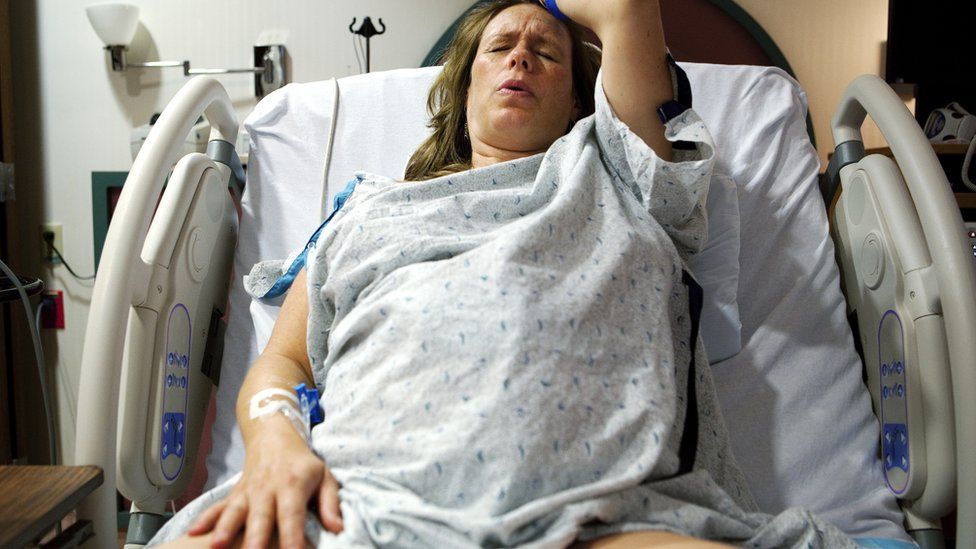ARTICLE AD BOX
 Image source, Getty Images
Image source, Getty Images
By Michelle Roberts
Digital health editor
Women in labour should be offered an alternative to an epidural spinal block injection, say new draft guidelines for the NHS.
The National Institute for Health and Care Excellence (NICE) is recommending remifentanil, which is a fast-acting morphine-like drug given into a vein.
Women control the medication themselves, by pressing a button to get more of the drug for pain relief.
A timer ensures the user cannot administer too much of it.
Women who decide to try remifentanil and do not like it could still decide to have an epidural instead if there is no medical reason why they should not.
They can use gas and air, also called Entonox, which is a mix of oxygen and nitrous oxide, at the same time.
Some hospitals in England recently paused the use of gas and air over concerns for maternity ward staff after finding high residual levels of nitrous oxide in delivery suites.
NICE says having remifentanil as a treatment option has advantages - it might enable women to be more mobile than with an epidural, which makes the legs numb and weak, for example.
Evidence suggests fewer epidurals might mean fewer births using instruments like forceps and ventouse vacuum suction, says NICE.
How does remifentanil work?
It is a strong painkiller that provides quick, short pain relief - acting within 20-30 seconds and wearing off in minutes.
Women in hospital can use it to manage painful labour contractions.
It does cross the placenta, meaning the baby will get a bit of the drug too, but it wears off speedily and its use in large numbers of women suggests this is safe, say experts.
Some women can experience side effects, including feeling temporarily sleepy, sick or dizzy.
Currently, not every maternity unit uses remifentanil, so discuss with your midwife whether it is available where you plan to give birth, advises the National Childbirth Trust.
The guidelines do not recommend offering women aromatherapy, yoga or acupressure for pain relief but say that if a woman wants to use any of these techniques her choice should be supported.
Similarly, TENS (transcutaneous electrical nerves stimulation) machines are not usually provided by the NHS because there is "very little evidence" of effectiveness, but women can use their own if they wish since there is "no evidence of harm".
Related Internet Links
The BBC is not responsible for the content of external sites.

 2 years ago
54
2 years ago
54








 English (US) ·
English (US) ·